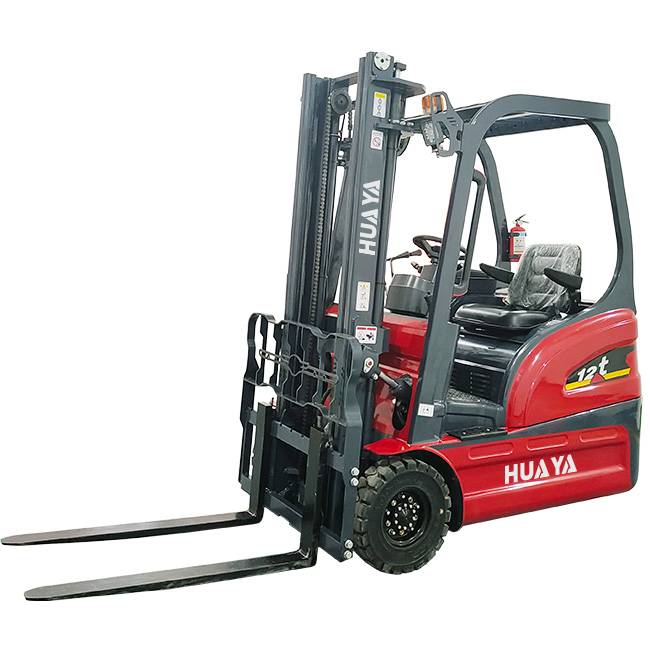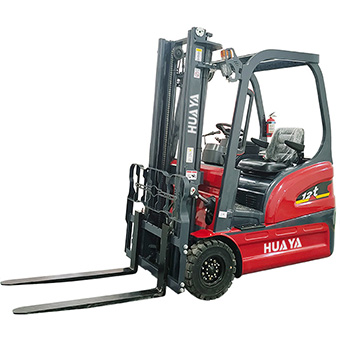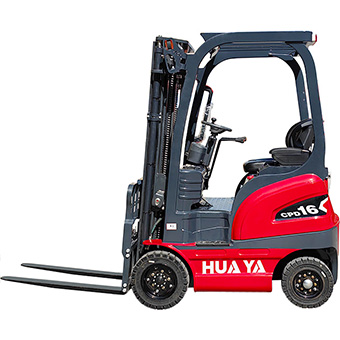
Notícias
Choosing a 3-wheel or 4-wheel forklift depends on your operational needs, workspace, and material handling requirements. Both options have distinct advantages and are suitable for specific applications. This blog lists their differences, advantages, and considerations to help you choose the right model for your project.

Manobrabilidade
3 Wheel Forklift: Offers exceptional maneuverability, making it ideal for tight spaces and narrow aisles.
4 Wheel Forklift: Provides stability and is better suited for open spaces or uneven terrains.
Turning Radius
3 Wheel Forklift: Features a smaller turning radius due to its single rear wheel, perfect for precise movements.
4 Wheel Forklift: Requires a larger turning radius but ensures greater control on straight paths.
Capacidade de carga
3 Wheel Forklift: Typically has a lower load capacity, suitable for lighter operations.
4 Wheel Forklift: Can handle heavier loads, making it ideal for demanding industrial tasks.
Stability
3 Wheel Forklift: Stability may be slightly compromised on uneven ground due to its rear-wheel configuration.
4 Wheel Forklift: Superior stability, especially on rugged surfaces, thanks to its even weight distribution.
Compact design for easy navigation in confined areas.
Cost-effective for businesses with lighter operational needs.
Lower initial investment compared to 4-wheel models.
Easier to operate in warehouses with tight shelving.
Higher lifting capacity for bulkier loads.
Enhanced stability for outdoor and uneven surfaces.
Versatile applications in manufacturing, construction, and logistics.
Robust design for long-term durability.
3 Wheel Forklift
Warehousing operations with narrow aisles.
Small-scale retail or wholesale facilities.
Indoor material handling in compact spaces.
4 Wheel Forklift
Outdoor projects with uneven terrains.
Heavy-duty industries like manufacturing and logistics.
Large warehouses or distribution centers require high-capacity lifting.
The choice between a 3-wheel and a 4-wheel forklift depends on your specific needs. If you prioritize maneuverability in tight spaces, a 3-wheel forklift is the optimal choice. Conversely, if stability and higher load capacity are critical, a 4-wheel forklift is the better option. Evaluate your operational requirements to make an informed decision.
The 3-wheel forklift is better suited for narrow aisles due to its compact design and smaller turning radius.
While it can manage moderate loads, a 4-wheel forklift is recommended for heavier operations.
Yes, but they require more space for maneuvering compared to 3-wheel forklifts.
3-wheel forklifts are generally more affordable and cost-effective for smaller operations.
Assess your workspace, load requirements, and terrain type to determine the best fit.



